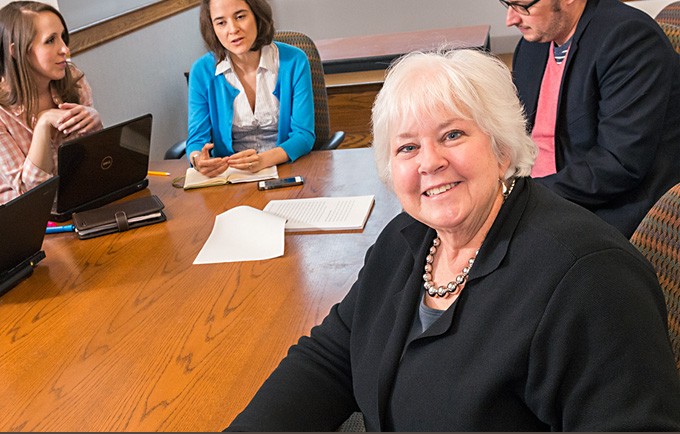Faculty & Research News
WCLE SUMMER CAMP
Summer’s annual approach, however predictable, is always a welcome occasion. For those of us in the Carroll School, summer stands not only for beach days, barbecues, and ice cream but also for WCLE Summer Camp. As the spring semester dies down, we eagerly search for new opportunities to share our knowledge and to learn from our peers. This year, we engaged in a series of illuminating discussions on a broad array of topics related to leadership, entrepreneurship, and management more generally.
Professor Mike Pratt led a day of summer camp on intractable conflict. We generally like to assume that all conflicts can be resolved in some way that is amicable to all involved parties; the reality, however, is not always so clean cut. Managing conflict, even if the conflict is unresolvable, is a critical leadership and entrepreneurial skill. Professor Sean Martin (now at the Darden School of Business at the University of Virginia) led a session during which he broadly surveyed the current state of leadership research. Dr. Martin highlighted several common pitfalls associated with leadership research, and explained how he expects (and hopes) the field to develop in the future. To round out our summer camp sessions, we heard from three of the Carroll School’s current doctoral students in management & organization–Ju Young Lee, Taehyun Lee, and Ben Innis–who led a session on organizational institutionalism. These students surveyed the history of institutional theory, and explained how institutions–pervasive, influential social structures–shape and are shaped by leaders’ and entrepreneurs’ actions.
Finally, Professors Curtis Chan and Mary Ann Glynn led a day of camp on academic writing in organization studies. Writing is one of the most important aspects of what we do as academics; clear, effective writing disseminates information efficiently and purposefully, expanding both scholarly and practical knowledge on leadership, entrepreneurship, and management more generally.
This year’s summer camp was especially well attended: on average, 90 percent of the department’s doctoral students were there, and well over 50 percent of the Carroll School’s Management and Organization faculty. Although we now must put the beach towels and sandals away for the season, the knowledge we gained during summer camp this year will stay with us throughout the fall, winter, and spring months. Next summer will arrive before we know it, and I know that many of us will be ticking off the days on our calendars until camp starts again.
Ben Innis ’21, PhD Candidate





